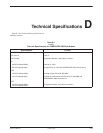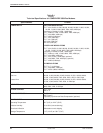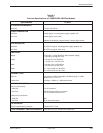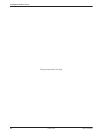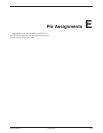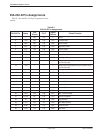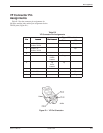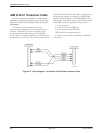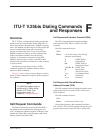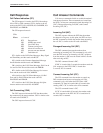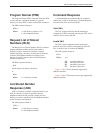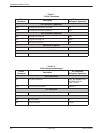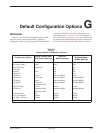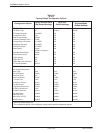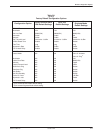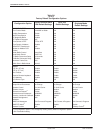
F-13980-A2-GB30-40 October 1998
ITU-T V.25bis Dialing Commands
and Responses
Overview
ITU-T V.25bis is an international dialing protocol that
permits direct and stored number dialing using DTEs in
either Asynchronous, Bisynchronous, or HDLC operating
mode. The 3800Plus modems support V.25bis request and
answer commands that initiate and cancel dialing,
program commands that allow you to create and enter
telephone numbers to memory, and list commands that
display all telephone numbers stored in directory
locations. As commands are entered from the DTE,
3800Plus modems issue a response to the DTE which
indicates if the call failed or connected, or if the command
is valid or invalid.
The following section discusses those V.25bis
commands supported by 3800Plus modems and the
response to those commands.
Tables F-1 and F-2 in the Command Response section
list the V.25bis command and response and the analogous
AT command.
NOTE
The 3800
Plus
modem must be
configured for V.25bis dialing.
Refer to DTE Dialer Type
configuration option in
Chapter 8,
Configure Branch
.
Call Request Commands
Call Request commands are issued from the DTE to
the modem and are responsible for initiating any dial
calls. Call Request commands include Call Request with
Number Provided (CRN) and Call Request with Stored
Memory Address Provided (CRS).
Call Request with Number Provided (CRN)
The CRN command dials the telephone number
entered from the DTE. CRN is similar to the ATD
command.
The CRN command format is:
CRNn
Where: n is the dial string. The following
characters are permitted:
T DTMF Dialing
P Pulse Dialing
0–9 DTMF Tones or
Pulse Dialed Digits
* # A B C D DTMF Tones
R Reverse Dial
: Wait for Dial Tone
, or < User-Defined Pause
& Flash Hook
= or > Delimiters
Call Request with Stored Memory
Address Provided (CRS)
The CRS command dials the telephone number stored
in the request directory location. CRS is similar to the
ATDS command.
The CRS command format is:
CRSx
Where: x is directory location 1–10.
The modem responds to the command with either a
VAL (valid) or INV (invalid) response followed by a call
progress report such as connect (CNX) or failure (CFI).
F



